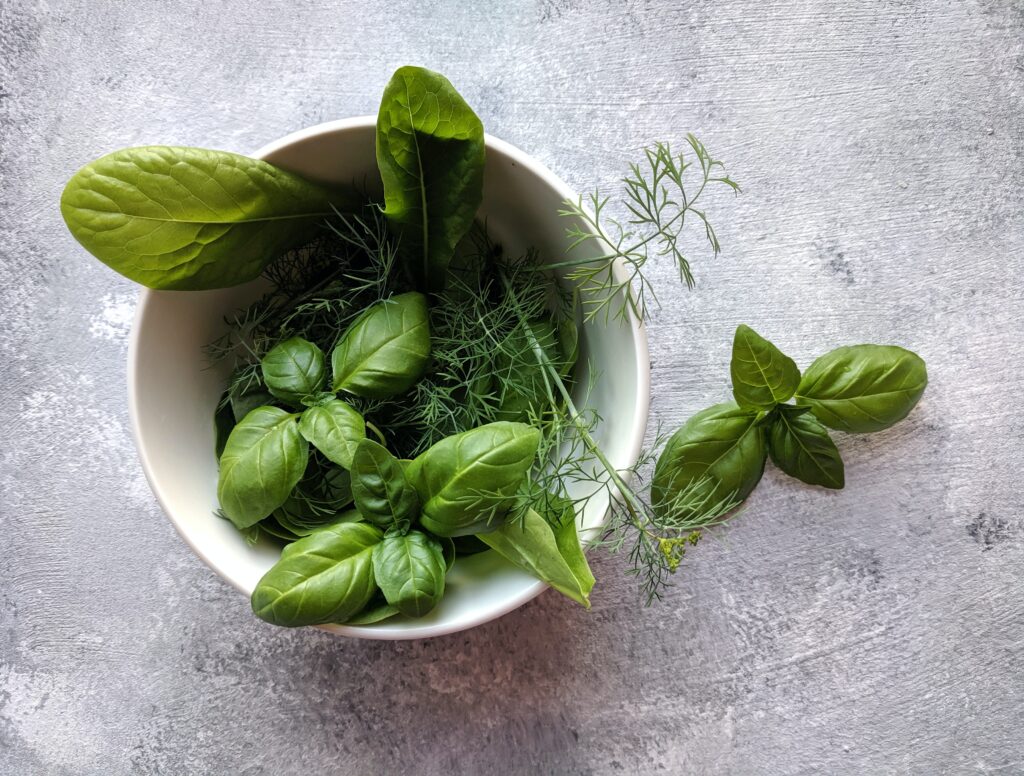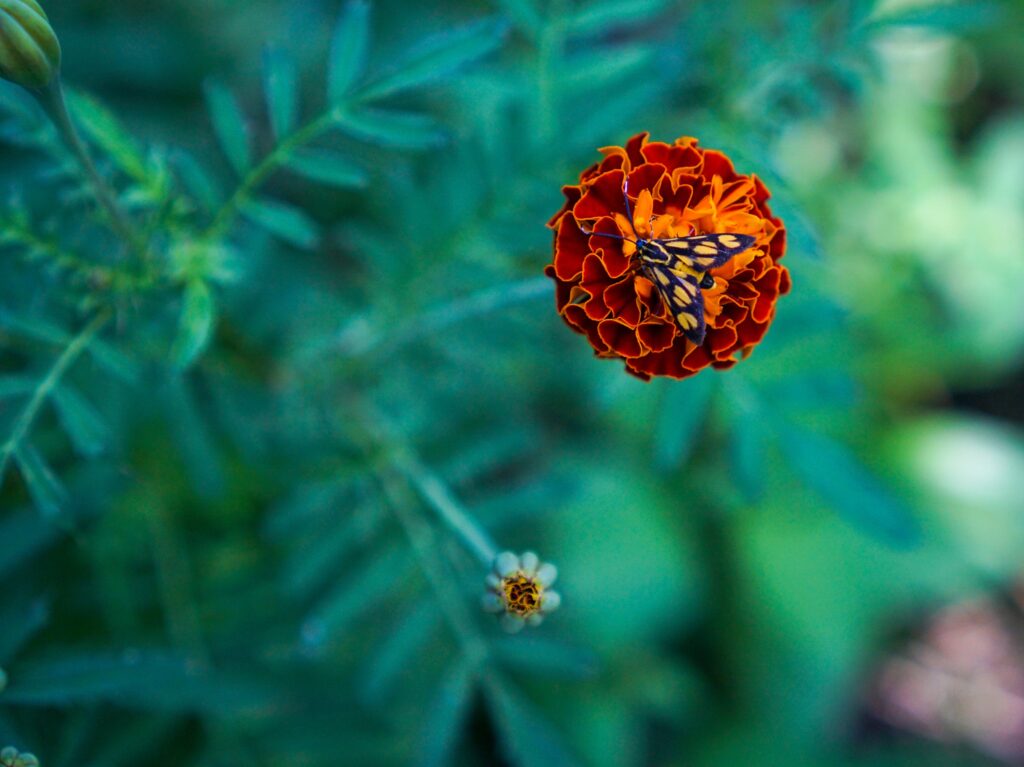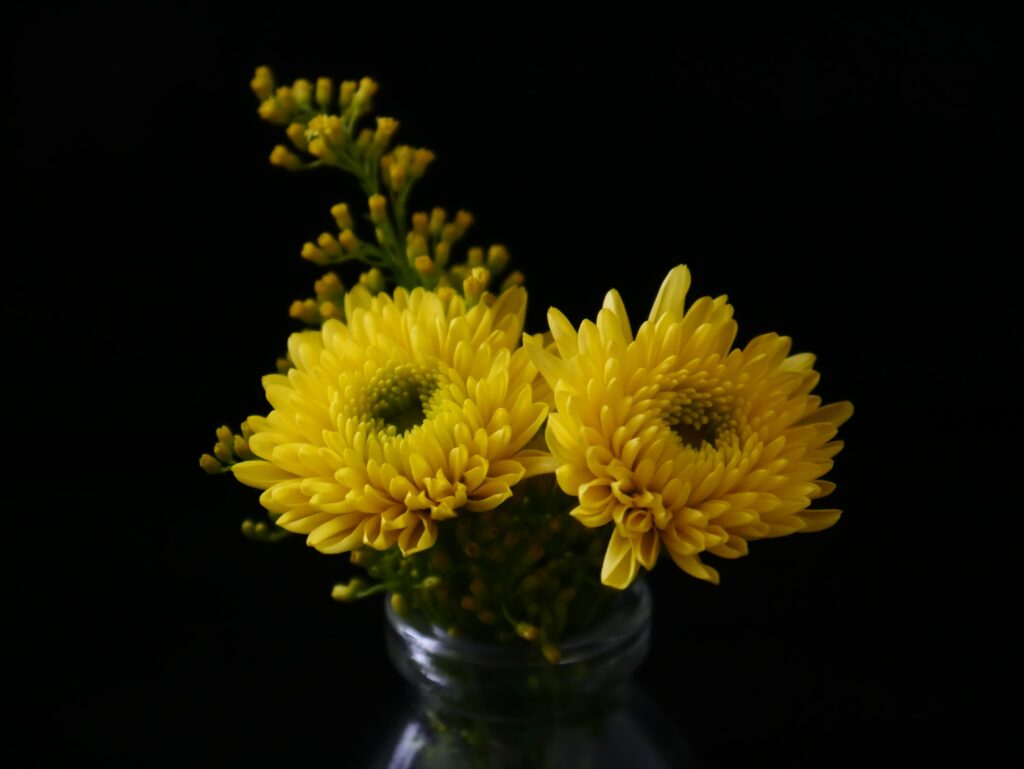In every garden lover’s journey, there comes a time when they must face the challenge of keeping pests at bay. Insects can wreak havoc on plants. They can affect both their growth and overall health. That is where insect-repelling plants come to the rescue. These eco-friendly garden defenders protect your garden and add charm and beauty to your outdoor space.
The advantages of using natural pest control methods are numerous. For one, you’re avoiding using harmful chemicals that can impact the environment. In addition, many insect-repelling plants provide the added benefit of attracting pollinators, which helps your garden thrive. These plants have unique properties that can help ward off various insects. Using them ensures that your garden remains a healthy and vibrant sanctuary.
Basil is a popular culinary herb known for its fragrant, flavorful leaves. But beyond its gastronomic appeal, basil also boasts impressive insect-repelling properties that make it a valuable addition to any garden. The strong, aromatic scent of basil leaves is an effective deterrent against various insects. It affects mosquitoes, whiteflies, and even garden pests like aphids.In addition to its pest-fighting prowess, basil is an attractive plant in various colours, shapes, and flavors. Basil’s lush foliage and delicate flowers make it a beautiful indoor plant. Growing basil is relatively easy, as it thrives in warm temperatures and well-draining soil. As a sun-loving plant, basil benefits from a location that receives plenty of sunlight.

Lavender is a perennial herb well-known for its beautiful purple flowers and calming fragrance. Native to the Mediterranean region, lavender has been used for centuries for its medicinal properties, as well as in perfumes and aromatherapy. The plant’s delightful scent, which humans find appealing, is a natural deterrent for many insects, including mosquitoes, moths, and flies.
The insect-repelling properties of lavender come from its essential oil found in flowers and leaves. This oil is effective against insects and helps keep other pests, like mice and rabbits, at a distance. Planting lavender around your garden or placing dried lavender sachets in your home can be a great way to ward off unwanted critters.
Catnip is a perennial herb from the mint family, celebrated for its captivating effect on cats and its enticing aroma. In addition to this pet-friendly trait, catnip also boasts remarkable insect-repelling properties. The active ingredient in catnip, nepetalactone, effectively prevents mosquitoes, flies, and other unwanted insects. Thus it provides a natural line of defense for your outdoor space. This attractive plant with soft, grey-green leaves and delicate clusters of white or lavender flowers that bloom from late spring to early fall.
Marigolds are bright, cheerful annual flowers in various colours, including yellow, orange, and red. These vibrant blossoms belong to the Tagetes genus and are more than just a visual treat. They are also famous as insect-repelling plants. Marigolds release a strong scent that is unpleasant to many insects, such as aphids, whiteflies, and nematodes, making them a natural barrier against pests in your garden. In addition to deterring insects, marigolds also repel some harmful soil nematodes, which can damage the roots of susceptible plants.
The beauty of marigolds extends beyond their colourful petals; their various shapes and sizes make them suitable for different areas of your garden. From dwarf varieties perfect for borders and containers to taller types, marigolds are versatile and easy to incorporate into your landscape design. As a bonus, marigolds are relatively low-maintenance, making them an excellent choice for novice and experienced gardeners.

Citronella grass, known for its distinct lemony fragrance, is a tall, perennial grass that serves as a natural guardian against mosquitoes and other flying insects. As the primary source of citronella oil, it is a popular ingredient in insect repellents, candles, and sprays. This aromatic plant is highly effective in keeping mosquitoes at bay. Experts in gardening from the bestmovers.nyc database like to note that this plant adds texture and movement to your garden. The elegant, arching leaves of citronella grass make your outdoor space more enjoyable. In addition, its lemony scent freshens the air.
Lemon balm, valued for its calming properties and delightful citrus scent, is a versatile herb commonly found in herbal teas and aromatherapy. In addition to its soothing qualities, lemon balm boasts impressive insect-repelling capabilities. The refreshing aroma of lemon balm effectively deters mosquitoes and other insects. At the same time, it allows you to create a more enjoyable and pest-free outdoor space. In addition, you can use these medium-green leaves, both fresh and dried, in various culinary and herbal preparations.

Chrysanthemums, or “mums,” are revered for their vibrant colours and showy blooms, making them a favorite among gardeners and flower enthusiasts. But these ornamental flowers offer more than just visual delight. They contain pyrethrum, a natural insecticide effective against pests like aphids, spider mites, and ticks. Unsurprisingly, every planting guide considers them a valuable ally in maintaining a healthy garden. These versatile flowers come in a wide range of colours, shapes, and sizes, providing countless options for enhancing the beauty of your garden.
Incorporating insect-repelling plants into your garden is a natural and eco-friendly way to protect your plants from pests. Not only will your garden benefit from the added beauty and diversity, but you’ll also enjoy the peace of mind of knowing you’re using sustainable, chemical-free pest control methods. So, embrace the power of these natural defenders and let your garden flourish in a pest-free environment.